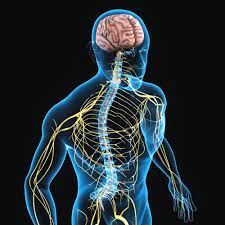Build and trust your gut instinct
Have you ever had a “gut feeling” that turned out to be right? Deep within our digestive system lies an ecosystem of trillions of microorganisms known as the gut microbiome. A complex network known as the gut–microbiome–brain axis means that our microbiome is in continuous communication with our brains. This two-way communication system shapes our mood, immunity, and builds our intuition.

Gut and brain are connected by the vagus nerve, a superhighway of information that carries signals in both directions. The gut also “speaks” through chemical messengers. Gut bacteria produce neurotransmitters like serotonin (which regulates mood); dopamine (motivation and reward); and GABA (calming the nervous system). In fact, up to 90% of the body’s serotonin is made in the gut.
How a healthy gut sharpens intuition
The gut is the primary organ for digestion; houses over 70% of the body's immune cells; and is considered the largest endocrine organ due to its production of hormones.
The gut sends hormonal and immune signals that influence how the brain perceives the world. When the microbiome is balanced, these signals are clear and supportive
When the brain receives consistent data about how safe, nourished, and balanced the body feels, we build our intuition. This brain’s ability to read subtle internal cues and translate them into guidance is a necessary part of our lives.
Why can’t we hear the “inner voice”?
Conversely, when the gut is inflamed, stressed, or imbalanced (a condition known as dysbiosis), the signals become distorted. The immune system goes on high alert, inflammatory cytokines travel to the brain, and the mental state can shift toward anxiety, fatigue, or brain fog. It’s like trying to hear your inner voice through static.
Think of your gut as the body’s antenna, constantly scanning, sensing, and feeding back information to your brain so that you can make the right decisions
When the digestive tract is calm, its microbial residents diverse, and the nervous system balanced, the brain receives more accurate feedback about needs and surroundings.
Gut balance equals clearer instincts, emotional steadiness, or a sense of being “in tune” with yourself
This connection helps explain why moments of strong intuition often arise when we feel physically grounded. Your body and brain are in sync, decoding subtle signals about people, choices, and environments.
How to strengthen the gut and the inner compass
💫 Feed your microbes well. A diverse diet rich in fiber, fermented foods and prebiotics helps the microbiome flourish.
💫 Reduce chronic stress. Stress hormones disrupt the gut lining and microbial balance. Practices like breathwork, meditation, or time in nature help restore vagal tone and support gut–brain harmony.
💫 Sleep deeply. Quality sleep strengthens both the microbiome and the neural circuits involved in emotional regulation and intuition.
💫 Limit ultra-processed foods and antibiotics. These can reduce microbial diversity, making gut’s messages fuzzier and the body more inflamed.
💫 Move your body. Exercise improves digestion, circulation, and the release of “feel-good” neurotransmitters that link gut and brain health.
When our gut is healthy, it’s not just our digestion that benefits. We reclaim a deeper kind of knowing. Our intuition sharpens, our mind clears, and decision-making becomes more fluid. In a world full of external noise, listening to the gut is one of the most powerful ways to navigate life. Our inner compass is rooted in biology, balance, and the wisdom of your body itself.










